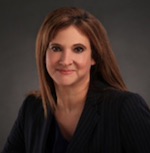“America,” a name that belongs to its citizens, is being mis-used by entities that do not live up to the values the word represents, especially free speech.
Free speech is ineffectual if the parties it is aimed at are behind stone walls and block out anything that is being said.
 |
“America” implies that people talk to each other. The Institute for PR has enshrined this value by championing “dialogic looping,” meaning people talk to each other even if two sides disagree.
Leading proponents of that are Tina McCorkindale, CEO of IPR, chair of the Educators Academy of PRSA in 2013, and Marcia DiStaso, 2014 Academy chair. DiStaso left Penn State earlier this year to join University of Florida, a land-grant institution, as chair of the PR department.
McCorkindale, based in Seattle, and DiStaso authored a a 23-page article for the PR Society's online PR Journal in 2013 that said a "dialogic loop" is the ideal form of communication for PR people.
|
|
They defined a dialogic loop as "any negotiated exchange of ideas and opinions."
They wrote: "Both parties must be willing to be open and listen to the other parties even if there is disagreement."
Despite such a send-up of dialogic looping, Prof. Gemma Puglisi of American University, Washington, D/C., 2017 chair of the Educators Academy, does not return emails nor do any of the other board members of the Academy. Also silent are professors, administrators and PR staff at the University.
“America” Is Trashed 2.4 Billion Times
The problem with Budweiser beer being called “America” is that 100,000 cases of 24 bottles or cans are sold each year or a total of 2,400,000 bottles and cans, virtually all of which end up in public and private trash cans. Some end up in street gutters, dumps, parks that are not properly cleaned, etc.
The bottles also carry the U.S. slogan “E Pluribus Unum” and lyrics to the Star Spangled Banner.
This is no way for our nation’s name to be treated. It’s being done by an insensitive, foreign-owned entity, A-B In-Bev of Belgium. Its ad agency is WPP, based in the U.K. and headed by Martin Sorrell.
WPP’s hostile attitude to the press is well known. Three formerly press-friendly U.S. PR firms went into seclusion when they were sold to WPP—Carl Byoir & Assocs., Hill & Knowlton, and Burson-Marsteller.
A-B In-Bev, aware of criticism, said it is donating up to $1 million from sale of patriotic products to Folds of Honor, a non-profit that helps the families of disabled service members. It had previously given it $11M
Press-Friendly Byoir Erased
The destruction of press-friendly Byoir, the third largest PR firm, following its purchase by WPP’s Hill & Knowlton unit, was covered in a report Aug. 7 on this site.
It had revenues of $17 million in 1985, 200 clients and 300 employees, 175 in New York. Then billing $11M, it was sold in 1978 to Foote, Cone & Belding for about $3M.
H&K, acquired by J. Walter Thompson in 1980, bought Byoir in October, 1986 for a reported $12M in cash. JWT in the same month acquired Gray and Co., Washington, D.C., for stock worth $17M. The addition of Byoir and Gray restored H&K temporarily to its position as the largest PR firm.
By 1996, only three Byoir New York staffers were left—Lee Silberman, Jack Griffin and secretary Pearl Lester. Virtually all accounts, branch officers and numerous media-orient services were lost or closed. The financial news dept. which once had 37 NYSE clients was closed. “The place got unrecognizable in recent years,” said one ex-staffer.
American University Is Silent
Not returning emails is anyone from American University, Washington, D.C., where Prof. Gemma Puglisi is 2017 chair of the PRSA Educators Academy.
|
|
PR and communications majors, especially the 11,000 members of PR Student Society of America, are being fed a thin intellectual diet about the industry that amounts to abuse.
The professors are part of a conspiracy of silence and avoidance of the facts, victimizing the hapless students and costing them large amounts of money.
Many PR students, including the officers and board of PRSSA, and professors, are afraid to have anything to do with the O’Dwyer Co., eliminating a vast resource of information, news and tutorials.
The professors wield power over the students who need good grades and recommendations from them. Abuse can be psychological as well as physical, Wikipedia points out.
Abuse Can Be Psychological
Mind abuse or mind control, says WP, refers to a process in which a group or individual "systematically uses unethically manipulative methods to persuade others to conform to the wishes of the manipulator(s), often to the detriment of the person being manipulated.” It includes “any tactic, psychological or otherwise, which can be seen as subverting an individual's sense of control over their own thinking, behavior, emotions or decision-making.”
Intimidation is intentional behavior "which would cause a person of ordinary sensibilities" fear of injury or harm. It is not necessary to prove that the behavior was so violent as to cause terror or that the victim was actually frightened. "
Educators Chair Puglisi Ignores Emails
Among PRSA leaders currently refusing any interaction with the O’Dwyer Co. are Prof. Puglisi and Melissa Dodd of Univ. of Central Florida, chair-elect.
Treatment of this writer at national conferences of PRSA in D.C. in 2010 and 2014 is ample proof of the “war” that national board and staff have conducted against the O’Dwyer Co. for many years and of which the students and members are well aware.
A delegate, on Oct. 16, 2010, in view of PRSA officers, staff and other delegates, threatened this reporter, who was standing in front of the Hilton Hotel, with being beaten “to a pulp” for daring to speak to another delegate.
It is time for PR and communications professors to feed their students a more complete informational diet about the PR industry and PR associations.

 Tina McCorkindale
Tina McCorkindale Gemma Puglisi
Gemma Puglisi
 There’s a fine line between newsjacking and taking advantage, aka ambulance chasing. Our job as PR professionals is to tread it carefully.
There’s a fine line between newsjacking and taking advantage, aka ambulance chasing. Our job as PR professionals is to tread it carefully. PR firms need to be mindful of ways their work product may be protected by the attorney-client privilege whenever working with a client’s internal legal team or its external legal counsel.
PR firms need to be mindful of ways their work product may be protected by the attorney-client privilege whenever working with a client’s internal legal team or its external legal counsel. Manuel Rocha, former US ambassador and intenational business advisor to LLYC, plans to plead guilty to charges that he was a secret agent for Cuba.
Manuel Rocha, former US ambassador and intenational business advisor to LLYC, plans to plead guilty to charges that he was a secret agent for Cuba. CEO mentoring is an often-overlooked aspect of why CEOs are able to make good decisions, and sometimes make bad ones—all of which intersects with the role and duties of a board.
CEO mentoring is an often-overlooked aspect of why CEOs are able to make good decisions, and sometimes make bad ones—all of which intersects with the role and duties of a board.  How organizations can anticipate, prepare and respond to crises in an increasingly complex world where a convergent landscape of global challenges, threats and risks seem to arrive at an unrelenting pace.
How organizations can anticipate, prepare and respond to crises in an increasingly complex world where a convergent landscape of global challenges, threats and risks seem to arrive at an unrelenting pace.


 Have a comment? Send it to
Have a comment? Send it to 
No comments have been submitted for this story yet.